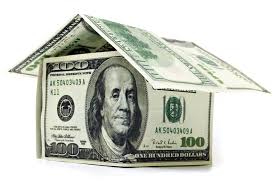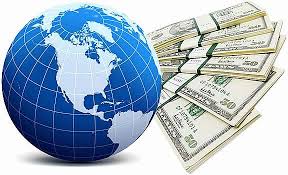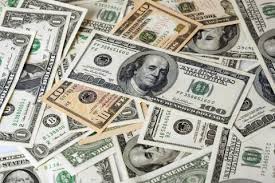Danger Ahead, China Real Estate
Property prices in China continued to rise in the first quarter of 2006. In Beijing, prices rose by 19.2% in 2005. The odd thing is that the amount of unsold housing also shot up by an even bigger margin of 31.6% to 13.7 million square meters. Overall, in China the amount of unsold real estate rose by a staggering 23.8% in the first quarter of 2006 compared to the same period a year ago. The area of unsold property developments reached 123 million square meters. Now, 23.8% is only meaningful if we know what is a heart stopping rate for property developers. Generally they would start to check themselves into the hospital once the rate goes past 10%-12%, you start writing the will at 15%. So, we are in very dangerous territory here.
Yes, no one can doubt that the underlying demand is there and will be there for a long time. Its the affordability factor which is ridiculous. Only a very small portion of China residents can afford most of the properties, and the market is largely dominated by foreign investors. Again that is further amplified by the fact that most of the buyers also own a few similar investments in China. Rents are struggling to keep as demand from expatriate postings starts to dwindle slightly. Expat postings comes and goes. Once the big events and projects are finished, rental yields will not be able to keep up at the current rates. Even current rentals are not realistic as many do not see rent yields as being necessary because they are in it for the capital gains - recipe for you-know-what.
When more than 70% of the population in the big east coastal areas cannot afford the properties, its not a good sign. The trouble about bubbles is that its easier to spot but harder to prick. To time a correction is almost ludricous. Despite the amount of rising unsold real estate, we also have a massive 1.03 billion square meters of real estate UNDER CONSTRUCTION in China during the first quarter. That figure is up by 23.3% from the same period a year ago. As if that was not enough, in the 1Q2006, property developers invested another 280 billion yuan (US$35 billion) in construction projects.
Another sign that I came across which could start deflating the Shanghai property bubble was the surprising rating given by Standard & Poor / Moody's on Shanghai Real Estate's (SRE) bond issue. SRE is a leading developer in Shanghai's financial hub, and has proposed a US$150 million (HK$1.17 billion) bonds. It was rated as non-investment, or junk status, as rating agencies were concerned about the company's narrow focus and limited cashflow. Standard & Poor's assigned a "BB-" long-term corporate credit rating to the seven-year bonds, three notches below the investment grade, while Moody's Investors Service assigned a similar "Ba3" rating. The ratings reflect the key challenges faced by Shanghai Real Estate, including its lumpy operating cash flow, resulting from its single business focus on property development. The significant geographic concentration on Shanghai alone did not help and the company's rising leverage was a big concern. Leverage is not just an option in Shanghai for property developers. Leverage is a necessary tool to compete. Developers there have to get the biggest projects and complete them the fastest, and try to sell them all yesterday. To enable the retail side to buy, many developers have innovative financing schemes to help the buyers/speculators - hence leverage is not an option in Shanghai property market. SRE said last month its 2005 profit surged 234% to HK$301 million, from HK$90 million a year earlier. The company plans to use the net proceeds from the proposed bond sale to replenish its land bank, rating agencies said. It has a land bank of 1.4 million square meter gross floor area in Shanghai, which the company estimates will be sufficient for its development for the next four to five years. However, S&P did say that SRE's low cost of land bank, good locations of its developing properties, and expertise in the industry are offset by its high concentration risk, small- scale operations, and lack of stable recurring income. After the bond sale, SRE's EBIT will fall to about 3x interest expense in 2007 from 10x in 2005. The thing is, cases like SRE are being replicated many times over all across Shanghai - when your earnings starts coming down from 10x of interest expense to just 3x, its a worry. There is not sufficient cushion for even a minor blip.
Even an aggressive REITs boost for commercial China properties may not save them as most of the yields are not sufficiently high enough, plus the bulk of the problem is in residential, which is not REIT-able (my newly coined term). Its going to happen but if you cannot stand the heat, a massive reduction in exposure is recommended. To stay away from China properties when you have made millions may be very difficult. It just takes one event to trigger the domino effect, and the one event could be anything, from the raising of interest rates or a small developer absconding or a developer stretching capital too far or buyers forfeiting their deposits.... it will happen and my guess is it will be way before the Olympics, not after.
skip to main |
skip to sidebar















tips, tricks, business, news, information, services, business, SEO, internet, websites, blogs, business, news, health, facebook, twitter, automotive, online marketing, unique, funny, zodiac, sport
Blog Archive
-
▼
2006
(308)
-
▼
April
(28)
- Global Rising Rates RepercussionsChina's central b...
- HK's Missing Legacy Part Deux
- AirAsia & Tenaga Covered WarrantsFairly Valued?Cov...
- The Next Big Thing For Asian Exchanges (ex-Japan)E...
- Companies That Are Truly GlobalIn an article by Go...
- The Devil Does Not Wear PradaDa Vinci Code Reloade...
- Still Got Them Cowboys In West AustraliaOld Boys' ...
- Danger Ahead, China Real EstateProperty prices in ...
- Onerous Sarbanes-Oxley To Allow ExemptionsFollowin...
- Short Sellers Get Short StrawedThe Ugly Child Only...
- Single Stock Futures - Great IntroductionThis is e...
- A Shift To Small CapsIf we look at the senior empl...
- Calpers / Wilshire Associates
- China Construction Bank Eyeing Bear StearnsAfter L...
- Pirated DVDs/VCDs Tycoons' Operations
- The New Corporate RaidersThe Burger King StoryBack...
- Malaysia-Singapore TiesBrawling Teenage Kids That ...
- Reiterating A Bullish Year For Asian Stocks
- Sarbanes-Oxley/Nasdaq/LSE
- Possibly The World's Most Valuable Unlisted Website
- Highly Speculative Stocks On KLSE NowTheir Danger ...
- Global Economics - Generalisations & Hidden Truths
- The Parable Of Paternalism
- No More Silly Records Breaking Please!
- Weekly Snippets, Snipes & SnidesApril 1 - April 6,...
- The Signs Are There For Shanghai
- Thaksin's Smartest MoveHow To Win, Then Concede, T...
- Weekly Snippets, Snipes & SnidesMarch 27 - April 1...
-
▼
April
(28)
No comments:
Post a Comment